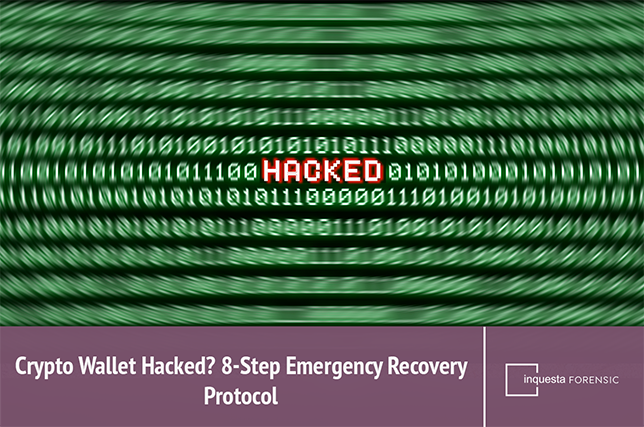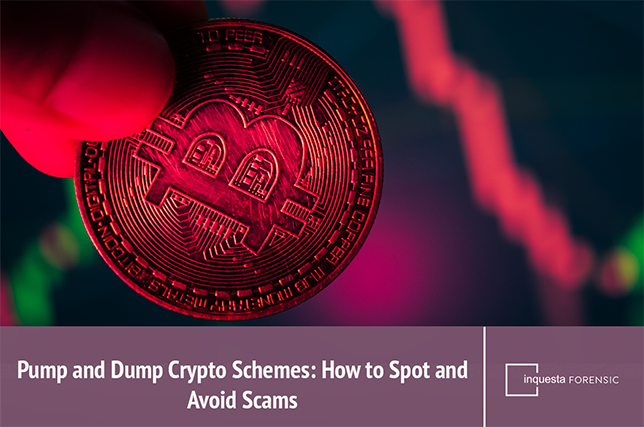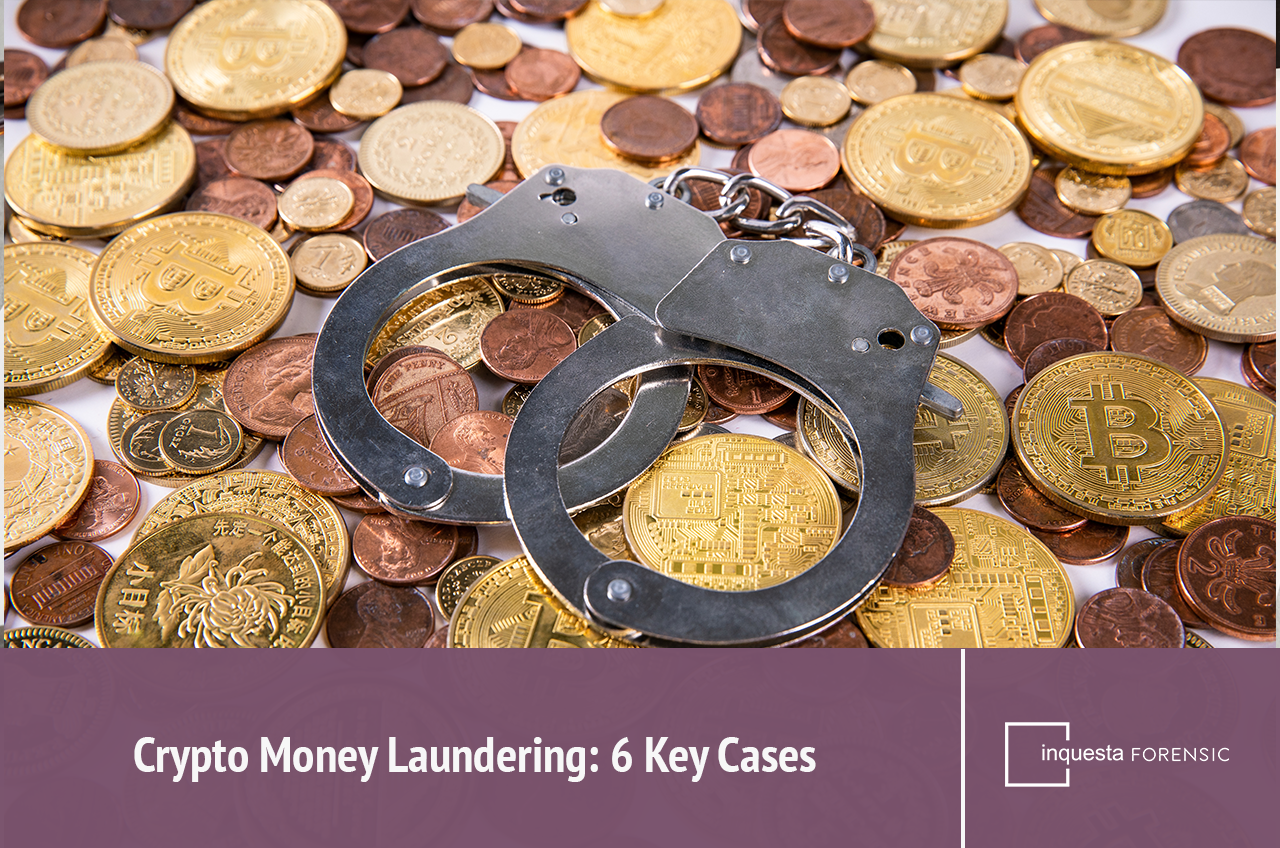The recent surge in widespread adoption of cryptocurrency has revolutionised financial transactions in the modern age. It offers a global reach with unparalleled speed.
However, such rapid growth has also provided new avenues for fraudulent activities which can pose significant challenges for forensic investigators. Successfully tracing digital assets in fraud cases demands both legal precision and technical expertise
To successfully trace digital assets in fraud cases will demand a mix of traditional techniques, advanced crypto forensic tools, and specialised training
This article delves into the methodologies that are utilised to successfully trace digital assets in fraud cases, the list of challenges investigators regularly face, and the landscape of forensic cryptocurrency investigations, including the future of crypto forensics.
Understanding the Blockchain: The Foundation of Crypto Investigations
Blockchain technology lies at the heart of cryptocurrency, and as a result, is the foundation of crypto investigations. This technology is a permanent, tamper-proof record intended to record all transactions across a decentralised network. Each transaction on a blockchain is time-stamped and linked to the previous one, creating a transparent and chronological ‘chain’ of data.
This transparent nature of transactions on the blockchain can be considered both an advantage and a challenge for investigators. This is because, while blockchains record transactions permanently, pseudonymous wallets — which hide real identities behind random sequences of numbers and letters — make identifying the users involved much more challenging.
Investigators often look to utilise a combination of blockchain analysis and more traditional forensic methods in order to attempt to uncover the identities associated with specific wallets.
For more information about what blockchain technology is, read our dedicated blog.
Tracing Digital Assets: The Process of Tracking Funds
The process of tracing digital assets in fraud causes is a complex one, requiring mapping illicit fund movements and identifying the perpetrators responsible wherever possible. Because cryptocurrency transactions are pseudonymous rather than fully anonymous, forensic investigators utilise a combination of techniques to track assets, de-anonymise wallets, and support recovery efforts.
The key steps in this process include:
Step One: Identification of Wallet Addresses
A forensic crypto crime investigation will typically begin by attempting to pinpoint the cryptocurrency wallet addresses that have been involved in the fraudulent activities.
This can be achieved through a number of different means, including:
- Assessing transaction records
- Scrutinising communications between those involved
- Utilising specialist software to detect suspicious wallet addresses.
Step Two: Transaction Analysis
Once the relevant wallet address(es) have been identified, the investigation will turn to examining the transaction history associated with these addresses.
This will involve the mapping out of the flow of funds in order to ascertain how assets were moved across the blockchain.

Step Three: Cross-Chain Examination
A common method utilised by fraudsters to deceive investigations is to move their illicit funds across different blockchains. This is done to attempt to hide their tracks from any potentially interested parties.
Advanced investigation techniques can trace these transactions across different chains and ensure that the movement of assets can be closely monitored, regardless of the platform utilised.
Step Four: Attribution and De-anonymisation
The end-goal when looking to trace digital assets in fraud cases is to tie the anonymous wallet addresses to real-world identities. The process to do so involves correlating blockchain data with off-chain information such as:
- IP Addresses
- Email communications
- Data obtained from cryptocurrency exchanges (that comply with regulations)
Common Digital Asset Tracing Challenges
While blockchain technology does offer transparency, forensic investigators will also be faced with significant and hard-to-overcome hurdles when looking to track illicit cryptocurrency transactions across the network. Fraudsters will exploit whatever tactic they can to better obscure their financial footprints, making digital asset tracing and recovery a complex and evolving challenge.

The key challenges in how to trace digital assets in fraud cases include:
- Use of Mixers and Tumblers: Mixer and tumbler services are used to aggregate transactions — mixing possibly illicit funds with 100% legitimate ones. This will obscure the origin and destination of assets.
- Privacy Coins: There are some cryptocurrencies, like Monero and Zcash which are specifically designed with enhanced privacy features in order to further conceal transaction details.
- Decentralised Exchanges (DEXs): Unlike centralised exchanges, DEXs will operate without strict regulatory oversight. This allows users to trade their assets directly without any intermediary oversight — facilitating the laundering of illicit funds.
- Jurisdictional Issues: The very global nature of cryptocurrencies and digital assets mean that transactions can very easily span multiple different countries and even continents, each of which will have its own regulatory frameworks in place. The process of coordinating an investigation across different jurisdictions can be a highly complex and time-consuming process.
Crypto Forensic Tools & Techniques
In order to counteract the complexities of tracing digital assets in fraud cases, forensic investigators leverage a combination of advanced technologies, traditional investigative methods, and legal frameworks. These crypto forensic tools and techniques are vital in allowing specialists to accurately follow the movement of funds and identify illicit activity, while supporting the legal process.
Some of the most common crypto forensic techniques and tools include:
Blockchain Analytics Platforms
Specialised blockchain analysis tools provide real-time tracking of cryptocurrency transactions. This allows investigators to trace funds and uncover links to possible illegal activity. The main benefits of these platforms are:
- More easily map transaction histories to visualise the movement of assets.
- Identify wallet clusters that could be associated with known fraud or criminal networks.
- Monitor suspicious transactions in real-time.

Forensic Accounting for Digital Transactions
Traditional forensic accounting principles can also be adapted for cryptocurrency investigations. This can be vital in helping detect fraudulent activity by:
- Assessing transaction patterns to spot anomalies that could indicate signs of money laundering, fraud, or other financial crimes.
- Reconciling blockchain transactions with off-chain financial records, such as bank statements or business ledgers and cross-referencing them.
- Tracking asset conversions where digital assets are exchanged for a government-backed fiat currency or another form of digital asset.
Forensic accountants play a key role in finding a connection between blockchain activity and real-world financial misconduct.
Legal Instruments for Crypto Asset Recovery
There are highly useful legal mechanisms that are vital in the recovery of misappropriated digital assets in the UK. The Proceeds of Crime Act (2002) provides a framework to:
- Freeze and confiscate assets, including digital assets, that are linked to criminality.
- Compel exchanges and associated third-parties to disclose information that relates to suspicious transactions.
- Enforce civil recovery orders wherever stolen funds may be pursued.
The Role of Forensic Accountants in Crypto Investigations
The role of forensic accountants in crypto investigations is significant. This is due to their advanced financial analysis skills utilised to trace digital assets, uncover fraudulent transactions, and also support ongoing legal proceedings. The expertise of a forensic accountant helps in quantifying misappropriated funds, providing expert testimony in court, while also assisting in asset recovery.
As a result, forensic accountants play a crucial role in holding these fraudsters accountable to ensure financial justice can be achieved. The role of forensic accountants in crypto investigations will generally include:
- Conducting Comprehensive Analyses: Experienced forensic accountants in crypto investigations are highly skilled in scrutinising transaction histories and assessing detailed financial data to identify anomalies and possible patterns that may indicate fraudulent activities.
- Valuing Digital Assets: The process of valuing any associated misappropriated assets is key to the legal process as well as recovery efforts.
- Providing Expert Testimony: Forensic accountants have the necessary training and expertise to serve as an expert witness in court. In cases of crypto-related crimes, this will likely involve explaining complex cryptocurrency transactions in the most understandable way possible.
- Assisting in Asset Recovery: If the flow of funds can be traced, the current location of assets can be identified. This can help in facilitating the recovery process.
Inquesta Forensic specialises in cryptocurrency fraud investigations, offering a bespoke service that encompasses the most complex elements of this critical and growing area.
The Future of Crypto Forensics
As cryptocurrency fraud grows more sophisticated, crypto forensics must evolve to stay ahead. Emerging technologies, evolving regulations, and global collaboration are shaping the industry’s future, equipping forensic experts with advanced tools to track illicit transactions and recover stolen assets
The following developments will shape the future of crypto forensics:
AI and Machine Learning in Crypto Forensics
Artificial intelligence (AI) and machine learning are rapidly revolutionising crypto forensic investigations. They do this by making the process of analysing blockchain transactions to detect anomalies, fraudulent activity, and to spot suspicious wallet behaviours much easier in the future than it is today.
These technologies help investigators trace stolen crypto assets, de-anonymise transactions, and link illicit activities to real-world entities far more efficiently than ever before.
Cross-Chain Tracking & Privacy Coin Challenges
Criminals are increasingly looking to exploit cross-chain transactions and privacy coins to further obscure illicit cash flows. Forensic crypto analysis now encompasses the leveraging of advanced blockchain intelligence tools. These crypto forensic tools can help to track assets across multiple blockchains, ensuring fraudulent transfers between different ecosystems do not go undetected.
Despite privacy-focussed cryptocurrencies like Monero and ZCash complicating investigations, forensic specialists are developing new crypto forensic techniques to help counteract these challenges.

Regulatory Developments & Global Collaboration
The future of crypto forensics will certainly also be shaped by evolving regulations. Government and financial watchdogs around the globe are in the process of introducing and enforcing much stricter laws. These rules and regulations are aimed to compel crypto exchanges and service providers to share critical transaction data.
Additionally, more normalised global cooperation between law enforcement agencies, regulators, and forensic specialists will further enhance the ability to track digital asset fraud and prosecute any offenders.
Quantum Computing: the Next Cybersecurity Frontier
Quantum computing is a new field utilising quantum mechanics to solve complex problems much faster than can be achieved on traditional computers. The rapid evolution in quantum computing could pose both a challenge and an opportunity for the future of crypto forensics.
While quantum computing remains theoretical for now — experts indicate that they are 5-10+ years away from being powerful enough to break blockchain security — it’s important to be aware of the innovations and prepare for what this industry could achieve. Estimates suggest that around 25% of all bitcoin on the market would be imminently at risk of a ‘quantum attack’ if the technology were more readily available.
Conscious of the future, blockchain networks are reportedly already exploring ways to mitigate the risk of quantum computing.
The Role of Crypto Forensic Experts Moving Forward
Whether investigating complex and far-reaching money-laundering schemes or tracing lost/stolen funds hidden on a blockchain, forensic accountants and investigators must stay ahead of any emerging threats, trends, and technologies.
As blockchain technology continues to evolve, the role of crypto forensics is becoming increasingly vital. The expertise of these specialists will be indispensable for tracing digital assets in fraud cases, recovering funds, and supporting solicitors during legal proceedings.
Whether investigating complex money-laundering schemes or tracing digital assets in fraud cases across multiple wallets, forensic accountants must keep pace with emerging threats and innovations. This includes using advanced blockchain analytics platforms, AI-driven transaction mapping, and tools capable of deanonymising crypto activity. Staying at the forefront of technology ensures investigators can uncover hidden assets and deliver robust, court-ready evidence.
Protect Your Assets with Expert Crypto Forensic Investigations
The rapid growth within the cryptocurrency industry has opened a world of new opportunities — as well as exposing us to new risks. Fraudsters are looking to exploit the anonymity of blockchain technology, making asset tracing a complex challenge that demands specialised expertise.
From analysing transaction trails to unmasking hidden wallets and navigating jurisdictional hurdles, the effective recovery of stolen crypto requires a blend of forensic accounting expertise and techniques, blockchain analytics, and modern legal strategies.
At Inquesta Forensic, our expertise combines deep financial investigation skills with crypto forensic tools and techniques to:
- Track and recover stolen assets across multiple blockchains.
- Uncover hidden transactions using advanced forensic techniques.
- Support legal action with court-ready evidence and expert testimony.
- Navigate regulatory complexities to maximise the chances of recovery.
Don’t let crypto fraud go unchecked. Contact us today for a confidential assessment — because when funds have disappeared, every single second is valuable.
- Your Partner’s Been Convicted: Can They Take Your House? What Section 10a POCA Means For You
- The Essential Role of Forensic Accounting in High Net Worth Divorce
- How to Value a Startup Business: A Guide for UK Entrepreneurs
- Pig Butchering Scams: Guide to Crypto Romance Fraud
- Shareholders’ Disputes: How Business Valuation Helps with Shareholder Dispute Resolution











